Debian version history on:
[Wikipedia]
[Google]
[Amazon]
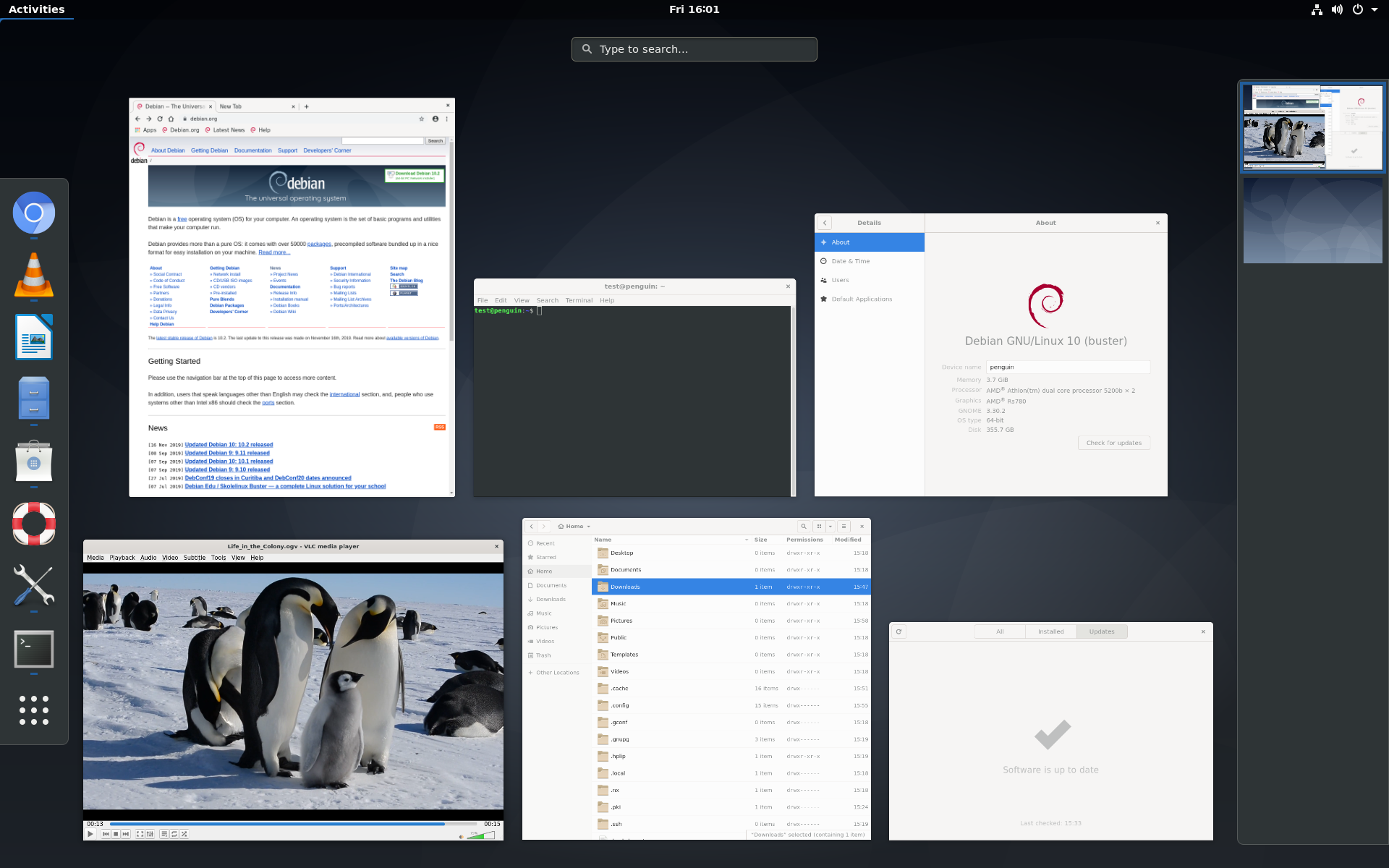
 Debian 1.3 (''Bo''), released 5 June 1997, contained 974 packages maintained by 200 developers.
Point releases:
* 1.3.1 ()
* 1.3.1r1 (Release date unknown)
* 1.3.1r2 (Release date unknown)
* 1.3.1r3 (Release date unknown)
* 1.3.1r4 (Release date unknown)
* 1.3.1r5 ()
* 1.3.1r6 ()
Debian 1.3 (''Bo''), released 5 June 1997, contained 974 packages maintained by 200 developers.
Point releases:
* 1.3.1 ()
* 1.3.1r1 (Release date unknown)
* 1.3.1r2 (Release date unknown)
* 1.3.1r3 (Release date unknown)
* 1.3.1r4 (Release date unknown)
* 1.3.1r5 ()
* 1.3.1r6 ()
 Debian 2.0 (''Hamm''), released 24 July 1998, contained over 1,500 packages maintained by over 400 developers. A transition was made to libc6 and Debian was ported to the
Debian 2.0 (''Hamm''), released 24 July 1998, contained over 1,500 packages maintained by over 400 developers. A transition was made to libc6 and Debian was ported to the
 Debian 2.1 (''Slink''), released 9 March 1999, contained about 2,250 packages. The front-end APT was introduced for the package management system and Debian was ported to
Debian 2.1 (''Slink''), released 9 March 1999, contained about 2,250 packages. The front-end APT was introduced for the package management system and Debian was ported to
 Debian 2.2 (''Potato''), released 14–15 August 2000, contained 2,600 packages maintained by more than 450 developers. New packages included the display manager GDM, the
Debian 2.2 (''Potato''), released 14–15 August 2000, contained 2,600 packages maintained by more than 450 developers. New packages included the display manager GDM, the
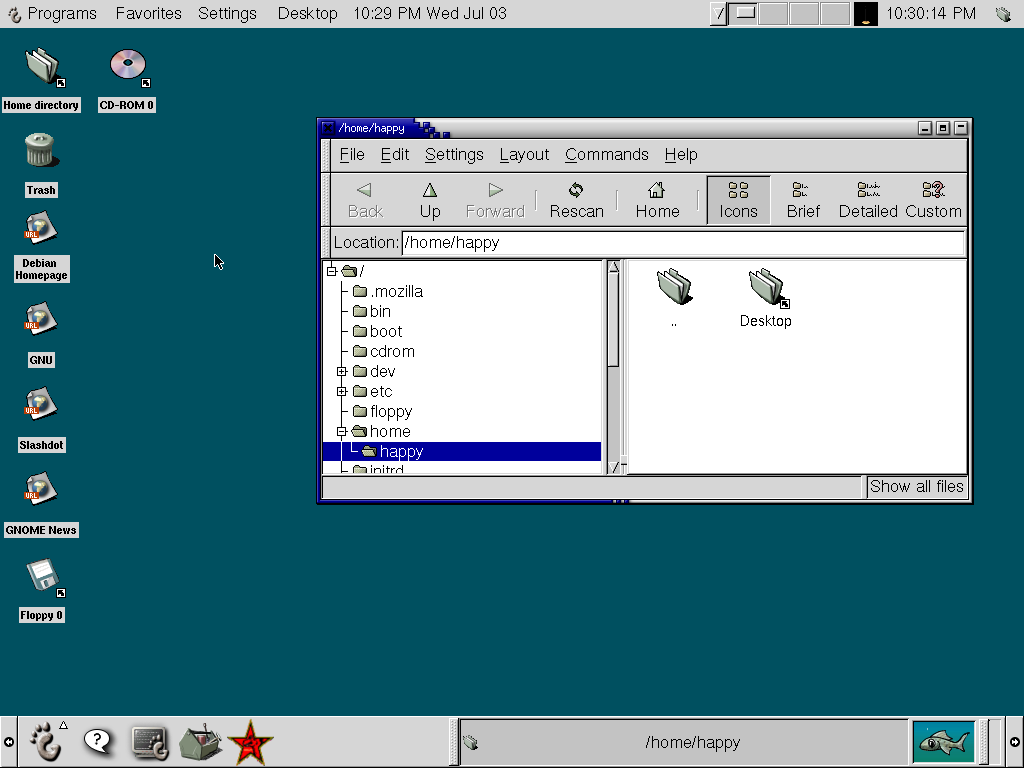 Debian 3.0 (''Woody''), released 19 July 2002, contained around 8,500 packages maintained by more than 900 developers.
Debian 3.0 (''Woody''), released 19 July 2002, contained around 8,500 packages maintained by more than 900 developers.
 Debian 3.1 (''Sarge''), released 6 June 2005, contained around 15,400 packages. debian-installer and OpenOffice.org were introduced.
Point releases:
* 3.1r1 ()
* 3.1r2 ()
* 3.1r3 ()
* 3.1r4 ()
* 3.1r5 ()
* 3.1r6 ()
* 3.1r7 ()
* 3.1r8 () this is the final update for codename Sarge.
Debian 3.1 (''Sarge''), released 6 June 2005, contained around 15,400 packages. debian-installer and OpenOffice.org were introduced.
Point releases:
* 3.1r1 ()
* 3.1r2 ()
* 3.1r3 ()
* 3.1r4 ()
* 3.1r5 ()
* 3.1r6 ()
* 3.1r7 ()
* 3.1r8 () this is the final update for codename Sarge.
 Debian 4.0 (''Etch''), released 8 April 2007, contained around 18,000 packages maintained by more than 1,030 developers. Debian was ported to
Debian 4.0 (''Etch''), released 8 April 2007, contained around 18,000 packages maintained by more than 1,030 developers. Debian was ported to
 Debian 5.0 (''Lenny''), released 14 February 2009, contained more than 23,000 packages. Debian was ported to the ARM EABI (armel) architecture.
Point releases:
*5.0.1 ()
*5.0.2 ()
*5.0.3 ()
*5.0.4 ()
*5.0.5 ()
*5.0.6 ()
*5.0.7 ()
*5.0.8 ()
*5.0.9 ()
*5.0.10 () this is the final update for codename Lenny.
Debian 5.0 (''Lenny''), released 14 February 2009, contained more than 23,000 packages. Debian was ported to the ARM EABI (armel) architecture.
Point releases:
*5.0.1 ()
*5.0.2 ()
*5.0.3 ()
*5.0.4 ()
*5.0.5 ()
*5.0.6 ()
*5.0.7 ()
*5.0.8 ()
*5.0.9 ()
*5.0.10 () this is the final update for codename Lenny.
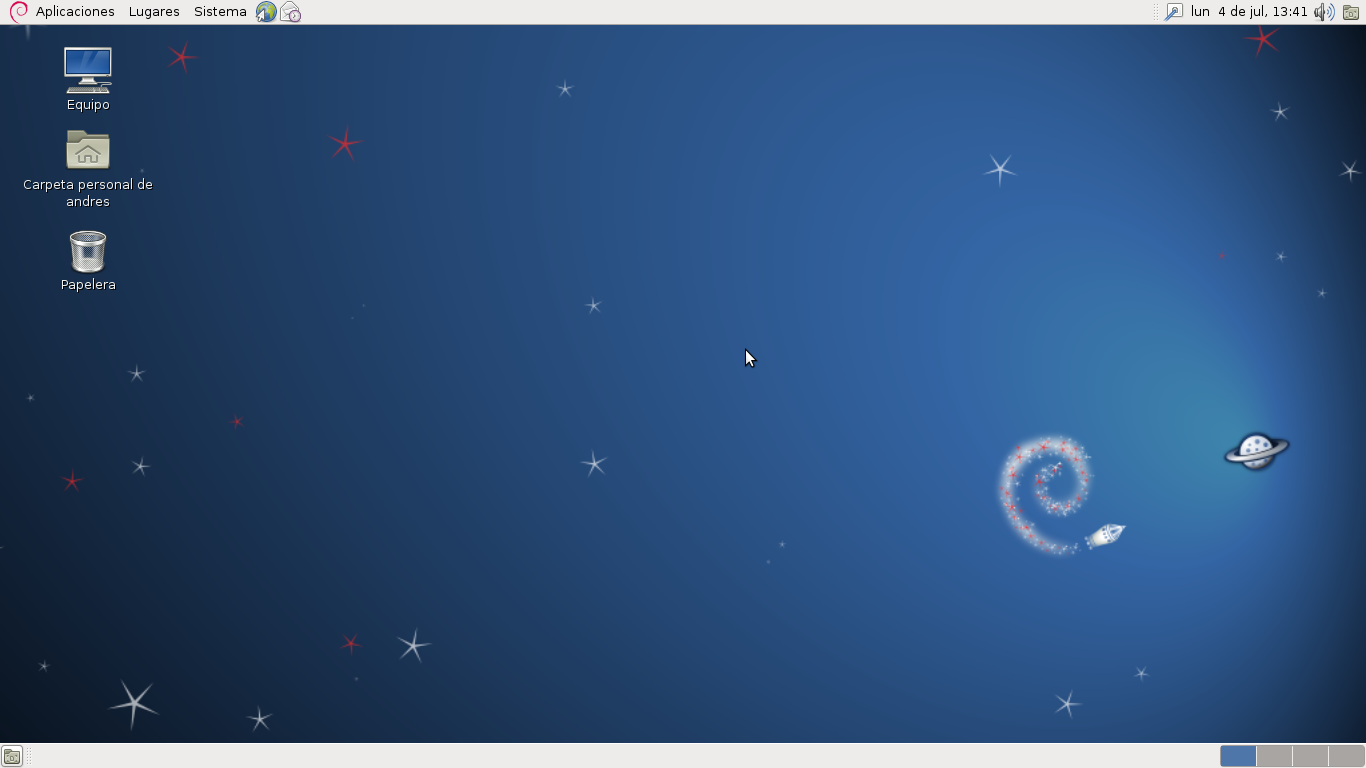 Debian 6.0 (''Squeeze''), released 6 February 2011, contained more than 29,000 packages. The default Linux kernel included was deblobbed beginning with this release. The web browser
Debian 6.0 (''Squeeze''), released 6 February 2011, contained more than 29,000 packages. The default Linux kernel included was deblobbed beginning with this release. The web browser
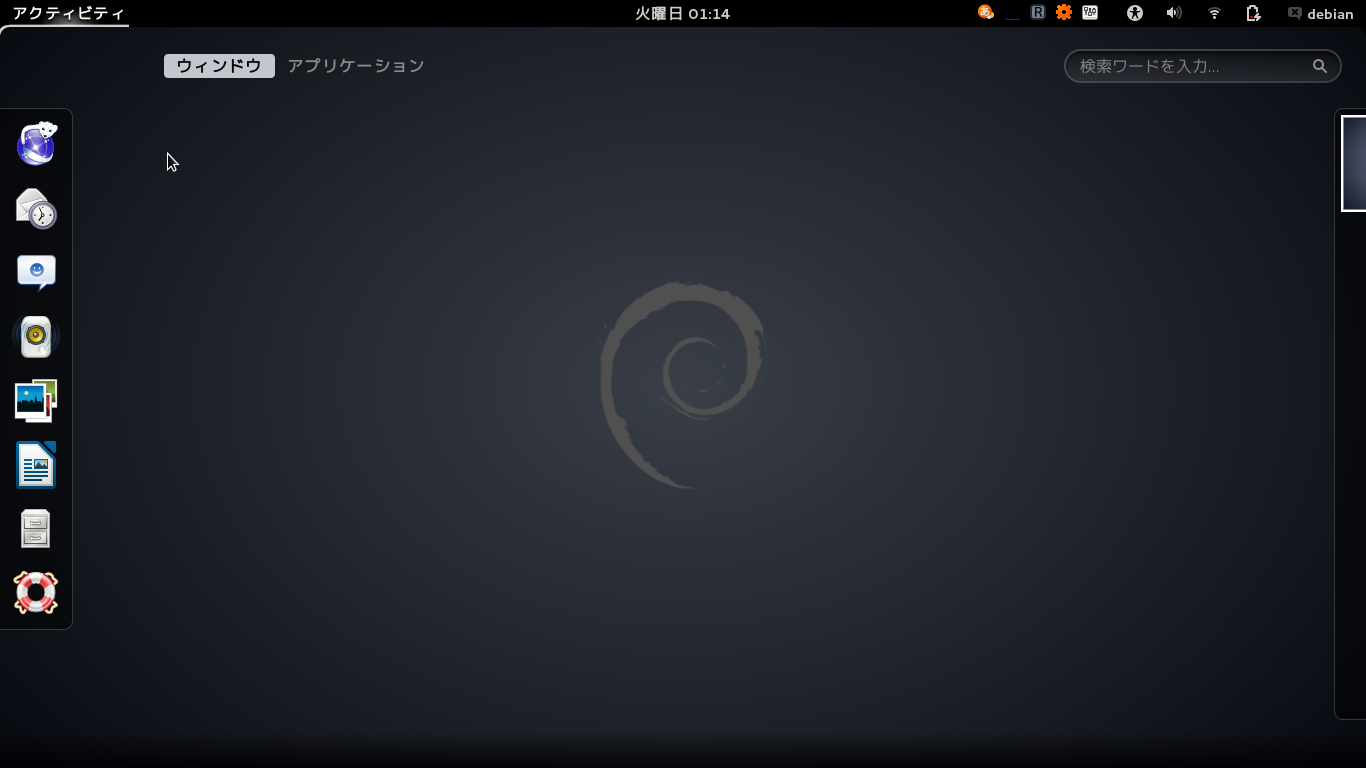 Debian 7 (''Wheezy''), released 4 May 2013, contained more than 36,000 packages. Support for
Debian 7 (''Wheezy''), released 4 May 2013, contained more than 36,000 packages. Support for
 Debian 8 (''Jessie''), released 25 April 2015, contained more than 43,000 packages, with systemd installed by default instead of
Debian 8 (''Jessie''), released 25 April 2015, contained more than 43,000 packages, with systemd installed by default instead of
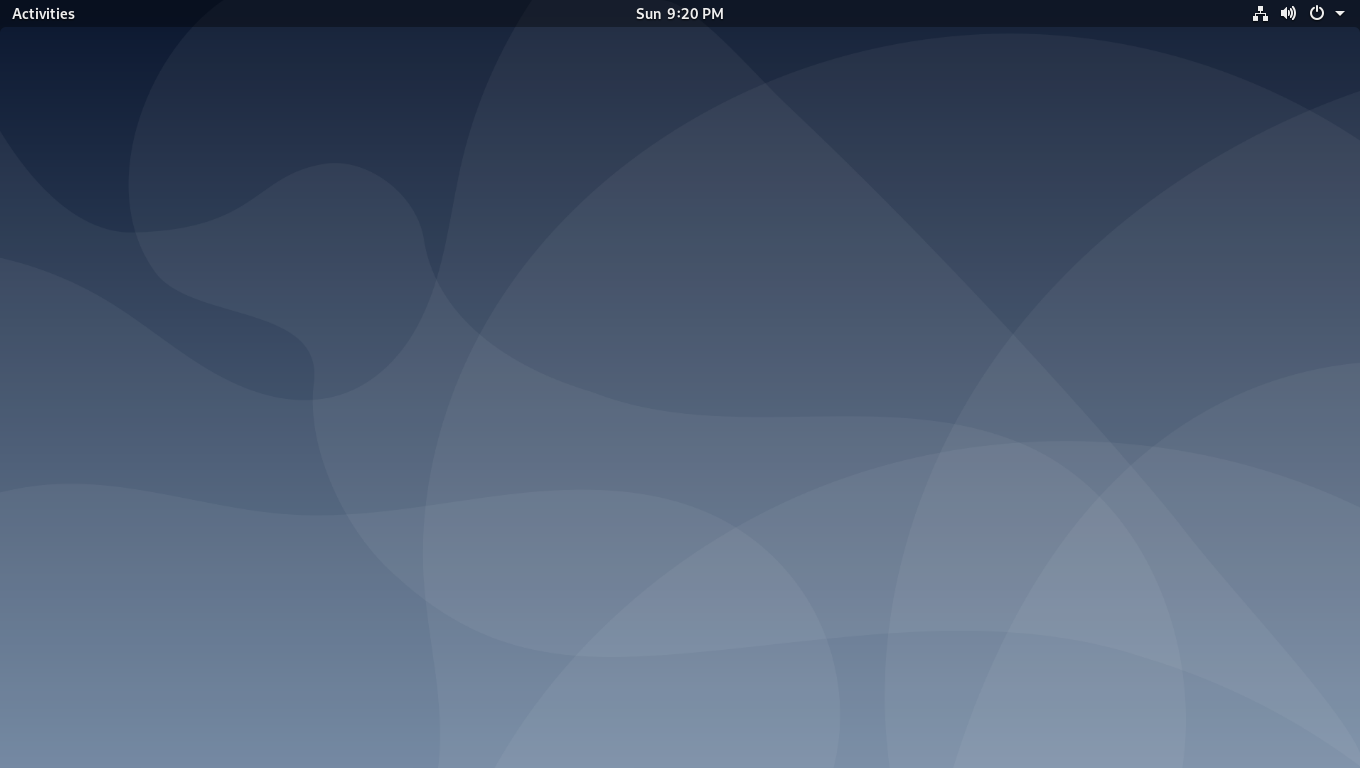 Debian 10 (Buster) was released on . It was two years and a month after Debian 9 (Stretch). Debian 10 contains 57,703 packages, supports UEFI Secure Boot, has AppArmor enabled by default, uses LUKS2 as the default LUKS format, and uses Wayland for GNOME by default.
Debian 10 ships with Linux kernel version 4.19. Available desktops include Cinnamon 3.8, GNOME 3.30, KDE Plasma 5.14, LXDE 0.99.2, LXQt 0.14, MATE 1.20, Xfce 4.12. Key
Debian 10 (Buster) was released on . It was two years and a month after Debian 9 (Stretch). Debian 10 contains 57,703 packages, supports UEFI Secure Boot, has AppArmor enabled by default, uses LUKS2 as the default LUKS format, and uses Wayland for GNOME by default.
Debian 10 ships with Linux kernel version 4.19. Available desktops include Cinnamon 3.8, GNOME 3.30, KDE Plasma 5.14, LXDE 0.99.2, LXQt 0.14, MATE 1.20, Xfce 4.12. Key
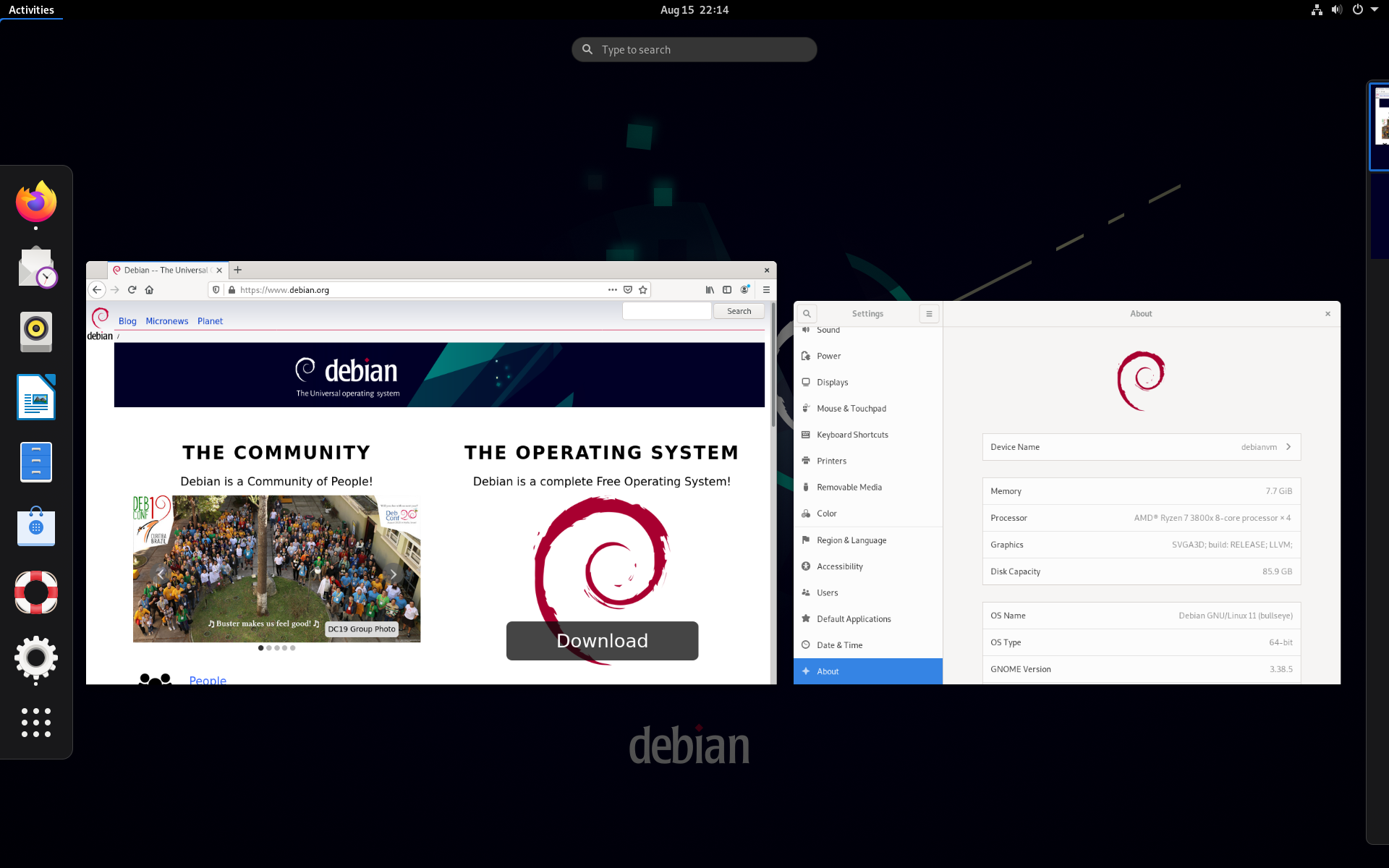 Debian 11 (Bullseye) was released on 14 August 2021. It is based on the Linux 5.10 LTS kernel and will be supported for five years.
On 12 November 2020, it was announced that "Homeworld", by Juliette Taka, will be the default theme for Debian 11, after winning a public poll held with eighteen choices.
Bullseye dropped the remaining Qt4/KDE 4 libraries and Python 2,
and shipped with Qt 5.15 KDE Plasma 5.20. Available desktops include Gnome 3.38, KDE Plasma 5.20, LXDE 11, LXQt 0.16, MATE 1.24, and Xfce 4.16.
Bullseye does not support the older big-endian 32-bit MIPS architectures. This is not to be confused with the more common i386 32-bit architecture which is still supported.
The first of the code freezes, readying Debian 11 for release, began on 12 January 2021.
Development freeze timetable:
* 12 January, 2021: transition freeze
* 12 February, 2021: soft freeze
* 12 March, 2021: hard freeze
* 17 July, 2021: full freeze
* 14 August, 2021: release
Point releases:
*11.1 ()
*11.2 ()
*11.3 ()
*11.4 ()
*11.5 ()
*11.6 ()
*11.7 ()
*Bullseye becomes oldstable, Bookworm is the current stable release ()
*11.8 ()
*11.9 ()
*11.10 ()
*11.11 (); this is the final point release for Bullseye
Debian 11 (Bullseye) was released on 14 August 2021. It is based on the Linux 5.10 LTS kernel and will be supported for five years.
On 12 November 2020, it was announced that "Homeworld", by Juliette Taka, will be the default theme for Debian 11, after winning a public poll held with eighteen choices.
Bullseye dropped the remaining Qt4/KDE 4 libraries and Python 2,
and shipped with Qt 5.15 KDE Plasma 5.20. Available desktops include Gnome 3.38, KDE Plasma 5.20, LXDE 11, LXQt 0.16, MATE 1.24, and Xfce 4.16.
Bullseye does not support the older big-endian 32-bit MIPS architectures. This is not to be confused with the more common i386 32-bit architecture which is still supported.
The first of the code freezes, readying Debian 11 for release, began on 12 January 2021.
Development freeze timetable:
* 12 January, 2021: transition freeze
* 12 February, 2021: soft freeze
* 12 March, 2021: hard freeze
* 17 July, 2021: full freeze
* 14 August, 2021: release
Point releases:
*11.1 ()
*11.2 ()
*11.3 ()
*11.4 ()
*11.5 ()
*11.6 ()
*11.7 ()
*Bullseye becomes oldstable, Bookworm is the current stable release ()
*11.8 ()
*11.9 ()
*11.10 ()
*11.11 (); this is the final point release for Bullseye
Debian Releases
at Debian Wiki
Debian Releases
at debian.org * {{Use dmy dates, date=September 2018 Debian Lists of operating systems Software version histories

Debian
Debian () is a free and open-source software, free and open source Linux distribution, developed by the Debian Project, which was established by Ian Murdock in August 1993. Debian is one of the oldest operating systems based on the Linux kerne ...
releases do not follow a fixed schedule. Recent releases have been made around every two years by the Debian Project. The most recent version of Debian is Debian version 12, codename "Bookworm". The next up and coming release of Debian is Debian 13, codename "Trixie".
Debian always has at least three active branches at any time: "stable", "testing" and "unstable". The stable branch is considered the primary release and what most people refer to when talking about Debian. The testing branch contains packages that have been imported from unstable. Testing has significantly more up-to-date packages than stable and is frozen some time before a release to become the next version of Debian. The unstable release (also known as Sid) is the branch where active development takes place. It is the most volatile version of Debian.
When the Debian stable branch is replaced with a newer release, the current stable becomes an "oldstable" release. When the Debian stable branch is replaced again, the oldstable release becomes the "oldoldstable" release. Oldoldstable is eventually moved to the archived releases repository.
Naming convention
Debian distribution codenames are based on the names of characters from the ''Toy Story
''Toy Story'' is a 1995 American animated adventure comedy film produced by Pixar Animation Studios for Walt Disney Pictures. It is the first installment in the Toy Story (franchise), ''Toy Story'' franchise and the Firsts in animation, firs ...
'' films. Debian's ''unstable'' trunk is named after Sid, a character who regularly destroyed his toys.
Release cycle
Debian Unstable, known as "Sid", contains all the latest packages as soon as they are available, and follows a rolling-release model. Once a package has been in Debian Unstable for 2–10 days (depending on the urgency of the upload), doesn't introduce critical bugs and doesn't break other packages (among other conditions), it is included in Debian Testing, also known as "next-stable". On average about every two years, Debian Testing enters a "freeze" cycle, where new packages are held back unless they fix critical bugs. This frozen state lasts on average 7 months (but can be as short as one month). Once Debian Testing doesn't contain any more release critical bugs, it is declared "stable" and released with a version number.Release table
When a release transitions to long-term support phase (LTS-phase), security is no longer handled by the main Debian security team. Only a subset of Debian architectures are eligible for Long Term Support, and there is no support for packages in backports.Release history
Debian 1.0 was never released, as a vendor accidentally shipped a development release with that version number. The package management system dpkg and its front-end dselect were developed and implemented on Debian in a previous release. A transition from the a.out binary format to theELF
An elf (: elves) is a type of humanoid supernatural being in Germanic peoples, Germanic folklore. Elves appear especially in Norse mythology, North Germanic mythology, being mentioned in the Icelandic ''Poetic Edda'' and the ''Prose Edda'' ...
binary format had already begun before the planned 1.0 release. The only supported architecture was Intel 80386
The Intel 386, originally released as the 80386 and later renamed i386, is the third-generation x86 architecture microprocessor from Intel. It was the first 32-bit computing, 32-bit processor in the line, making it a significant evolution in ...
(i386).
Debian 1.1 (Buzz)
Debian 1.1 (''Buzz''), released 17 June 1996, contained 474 packages. Debian had fully transitioned to the ELF binary format and used Linux kernel 2.0.Debian 1.2 (Rex)
Debian 1.2 (''Rex''), released 12 December 1996, contained 848 packages maintained by 120 developers.Debian 1.3 (Bo)
 Debian 1.3 (''Bo''), released 5 June 1997, contained 974 packages maintained by 200 developers.
Point releases:
* 1.3.1 ()
* 1.3.1r1 (Release date unknown)
* 1.3.1r2 (Release date unknown)
* 1.3.1r3 (Release date unknown)
* 1.3.1r4 (Release date unknown)
* 1.3.1r5 ()
* 1.3.1r6 ()
Debian 1.3 (''Bo''), released 5 June 1997, contained 974 packages maintained by 200 developers.
Point releases:
* 1.3.1 ()
* 1.3.1r1 (Release date unknown)
* 1.3.1r2 (Release date unknown)
* 1.3.1r3 (Release date unknown)
* 1.3.1r4 (Release date unknown)
* 1.3.1r5 ()
* 1.3.1r6 ()
Debian 2.0 (Hamm)
 Debian 2.0 (''Hamm''), released 24 July 1998, contained over 1,500 packages maintained by over 400 developers. A transition was made to libc6 and Debian was ported to the
Debian 2.0 (''Hamm''), released 24 July 1998, contained over 1,500 packages maintained by over 400 developers. A transition was made to libc6 and Debian was ported to the Motorola 68000 series
The Motorola 68000 series (also known as 680x0, m68000, m68k, or 68k) is a family of 32-bit computing, 32-bit complex instruction set computer (CISC) microprocessors. During the 1980s and early 1990s, they were popular in personal computers and ...
(m68k) architectures.
Point releases:
* 2.0r1 ()
* 2.0r2 ()
* 2.0r3 ()
* 2.0r4 ()
* 2.0r5 ()
Debian 2.1 (Slink)
 Debian 2.1 (''Slink''), released 9 March 1999, contained about 2,250 packages. The front-end APT was introduced for the package management system and Debian was ported to
Debian 2.1 (''Slink''), released 9 March 1999, contained about 2,250 packages. The front-end APT was introduced for the package management system and Debian was ported to Alpha
Alpha (uppercase , lowercase ) is the first letter of the Greek alphabet. In the system of Greek numerals, it has a value of one. Alpha is derived from the Phoenician letter ''aleph'' , whose name comes from the West Semitic word for ' ...
and SPARC.
Point releases:
* 2.1r1 (Possibly never released)
* 2.1r2 ()
* 2.1r3 ()
* 2.1r4 ()
* 2.1r5 ()
Debian 2.2 (Potato)
 Debian 2.2 (''Potato''), released 14–15 August 2000, contained 2,600 packages maintained by more than 450 developers. New packages included the display manager GDM, the
Debian 2.2 (''Potato''), released 14–15 August 2000, contained 2,600 packages maintained by more than 450 developers. New packages included the display manager GDM, the directory service
In computing, a directory service or name service maps the names of network resources to their respective network addresses. It is a shared information infrastructure for locating, managing, administering and organizing everyday items and network ...
OpenLDAP, the security software
Computer security software or cybersecurity software is any computer program designed to influence information security. This is often taken in the context of defending computer systems or data, yet can incorporate programs designed specifically ...
OpenSSH and the mail transfer agent
Within the Internet email system, a message transfer agent (MTA), mail transfer agent, or mail relay is software that transfers electronic mail messages from one computer to another using the Simple Mail Transfer Protocol. In some contexts, the a ...
Postfix. Debian was ported to the PowerPC
PowerPC (with the backronym Performance Optimization With Enhanced RISC – Performance Computing, sometimes abbreviated as PPC) is a reduced instruction set computer (RISC) instruction set architecture (ISA) created by the 1991 Apple Inc., App ...
and ARM architectures.
Point releases:
* 2.2r1 ()
* 2.2r2 ()
* 2.2r3 ()
* 2.2r4 ()
* 2.2r5 ()
* 2.2r6 ()
* 2.2r7 ()
Debian 3.0 (Woody)
 Debian 3.0 (''Woody''), released 19 July 2002, contained around 8,500 packages maintained by more than 900 developers.
Debian 3.0 (''Woody''), released 19 July 2002, contained around 8,500 packages maintained by more than 900 developers. KDE
KDE is an international free software community that develops free and open-source software. As a central development hub, it provides tools and resources that enable collaborative work on its projects. Its products include the KDE Plasma gra ...
was introduced and Debian was ported to the following architectures: IA-64
IA-64 (Intel Itanium architecture) is the instruction set architecture (ISA) of the discontinued Itanium family of 64-bit Intel microprocessors. The basic ISA specification originated at Hewlett-Packard (HP), and was subsequently implemented by ...
, PA-RISC
Precision Architecture reduced instruction set computer, RISC (PA-RISC) or Hewlett Packard Precision Architecture (HP/PA or simply HPPA), is a computer, general purpose computer instruction set architecture (ISA) developed by Hewlett-Packard f ...
(hppa), mips and mipsel and IBM ESA/390 (s390).
Point releases:
* 3.0r1 ()
* 3.0r2 ()
* 3.0r3 ()
* 3.0r4 ()
* 3.0r5 ()
* 3.0r6 ()
Debian 3.1 (Sarge)
 Debian 3.1 (''Sarge''), released 6 June 2005, contained around 15,400 packages. debian-installer and OpenOffice.org were introduced.
Point releases:
* 3.1r1 ()
* 3.1r2 ()
* 3.1r3 ()
* 3.1r4 ()
* 3.1r5 ()
* 3.1r6 ()
* 3.1r7 ()
* 3.1r8 () this is the final update for codename Sarge.
Debian 3.1 (''Sarge''), released 6 June 2005, contained around 15,400 packages. debian-installer and OpenOffice.org were introduced.
Point releases:
* 3.1r1 ()
* 3.1r2 ()
* 3.1r3 ()
* 3.1r4 ()
* 3.1r5 ()
* 3.1r6 ()
* 3.1r7 ()
* 3.1r8 () this is the final update for codename Sarge.
Debian 4.0 (Etch)
 Debian 4.0 (''Etch''), released 8 April 2007, contained around 18,000 packages maintained by more than 1,030 developers. Debian was ported to
Debian 4.0 (''Etch''), released 8 April 2007, contained around 18,000 packages maintained by more than 1,030 developers. Debian was ported to x86-64
x86-64 (also known as x64, x86_64, AMD64, and Intel 64) is a 64-bit extension of the x86 instruction set architecture, instruction set. It was announced in 1999 and first available in the AMD Opteron family in 2003. It introduces two new ope ...
(amd64) and support for the Motorola 68000 series
The Motorola 68000 series (also known as 680x0, m68000, m68k, or 68k) is a family of 32-bit computing, 32-bit complex instruction set computer (CISC) microprocessors. During the 1980s and early 1990s, they were popular in personal computers and ...
(m68k) architecture was dropped. This version introduced utf-8 and udev
udev (userspace ) is a device manager for the Linux kernel. As the successor of devfsd and hotplug, udev primarily manages device nodes in the directory. At the same time, udev also handles all user space events raised when hardware devices ...
device management by default.
Point releases:
*4.0r1 ()
*4.0r2 ()
*4.0r3 ()
*4.0r4 ()
*4.0r5 ()
*4.0r6 ()
*4.0r7 ()
*4.0r8 ()
*4.0r9 () this is the final update for codename Etch
Debian 5.0 (Lenny)
 Debian 5.0 (''Lenny''), released 14 February 2009, contained more than 23,000 packages. Debian was ported to the ARM EABI (armel) architecture.
Point releases:
*5.0.1 ()
*5.0.2 ()
*5.0.3 ()
*5.0.4 ()
*5.0.5 ()
*5.0.6 ()
*5.0.7 ()
*5.0.8 ()
*5.0.9 ()
*5.0.10 () this is the final update for codename Lenny.
Debian 5.0 (''Lenny''), released 14 February 2009, contained more than 23,000 packages. Debian was ported to the ARM EABI (armel) architecture.
Point releases:
*5.0.1 ()
*5.0.2 ()
*5.0.3 ()
*5.0.4 ()
*5.0.5 ()
*5.0.6 ()
*5.0.7 ()
*5.0.8 ()
*5.0.9 ()
*5.0.10 () this is the final update for codename Lenny.
Debian 6.0 (Squeeze)
 Debian 6.0 (''Squeeze''), released 6 February 2011, contained more than 29,000 packages. The default Linux kernel included was deblobbed beginning with this release. The web browser
Debian 6.0 (''Squeeze''), released 6 February 2011, contained more than 29,000 packages. The default Linux kernel included was deblobbed beginning with this release. The web browser Chromium
Chromium is a chemical element; it has Symbol (chemistry), symbol Cr and atomic number 24. It is the first element in Group 6 element, group 6. It is a steely-grey, Luster (mineralogy), lustrous, hard, and brittle transition metal.
Chromium ...
was introduced and Debian was ported to the kfreebsd-i386 and kfreebsd-amd64 architectures (while that port was later discontinued), and support for the Intel 486
The Intel 486, officially named i486 and also known as 80486, is a microprocessor introduced in 1989. It is a higher-performance follow-up to the Intel 386. It represents the fourth generation of binary compatible CPUs following the 8086 of ...
, Alpha
Alpha (uppercase , lowercase ) is the first letter of the Greek alphabet. In the system of Greek numerals, it has a value of one. Alpha is derived from the Phoenician letter ''aleph'' , whose name comes from the West Semitic word for ' ...
, and PA-RISC
Precision Architecture reduced instruction set computer, RISC (PA-RISC) or Hewlett Packard Precision Architecture (HP/PA or simply HPPA), is a computer, general purpose computer instruction set architecture (ISA) developed by Hewlett-Packard f ...
(hppa) architectures was dropped.
Squeeze was the first release of Debian in which non-free firmware components (aka "binary blobs") were excluded from the "main" repository as a matter of policy.
Point releases:
*6.0.1 ()
*6.0.2 ()
*6.0.3 ()
*6.0.4 ()
*6.0.5 ()
*6.0.6 ()
*6.0.7 ()
*6.0.8 ()
*6.0.9 ()
*6.0.10 () this is the final update for codename Squeeze.
*Squeeze long term support reached end-of-life ()
Debian 7 (Wheezy)
 Debian 7 (''Wheezy''), released 4 May 2013, contained more than 36,000 packages. Support for
Debian 7 (''Wheezy''), released 4 May 2013, contained more than 36,000 packages. Support for UEFI
Unified Extensible Firmware Interface (UEFI, as an acronym) is a Specification (technical standard), specification for the firmware Software architecture, architecture of a computing platform. When a computer booting, is powered on, the UEFI ...
was added and Debian was ported to the armhf and IBM z/Architecture (s390x) architectures.
Point releases:
*7.1 ()
*7.2 ()
*7.3 ()
*7.4 ()
*7.5 ()
*7.6 ()
*7.7 ()
*7.8 ()
*Debian 8.0 codename Jessie releases, Wheezy becomes oldstable ()
*7.9 ()
*7.10 ()
*7.11 () this is the final update for codename Wheezy.
*Debian 9.0 codename Stretch releases, Wheezy becomes oldoldstable ()
*Wheezy long term support reached end-of-life ()
*Wheezy extended long term support reached end-of-life ().
Debian 8 (Jessie)
 Debian 8 (''Jessie''), released 25 April 2015, contained more than 43,000 packages, with systemd installed by default instead of
Debian 8 (''Jessie''), released 25 April 2015, contained more than 43,000 packages, with systemd installed by default instead of init
In Unix-based computer operating systems, init (short for ''initialization'') is the first process started during booting of the operating system. Init is a daemon process that continues running until the system is shut down. It is the direc ...
. ( sysvinit and upstart packages are provided as alternatives.) Debian was ported to the ARM64
AArch64, also known as ARM64, is a 64-bit version of the ARM architecture family, a widely used set of computer processor designs. It was introduced in 2011 with the ARMv8 architecture and later became part of the ARMv9 series. AArch64 allows ...
and ppc64le architectures, while support for the IA-64
IA-64 (Intel Itanium architecture) is the instruction set architecture (ISA) of the discontinued Itanium family of 64-bit Intel microprocessors. The basic ISA specification originated at Hewlett-Packard (HP), and was subsequently implemented by ...
, kfreebsd-amd64 and kfreebsd-i386, IBM ESA/390 (s390) (only the 31-bit variant; the newer 64-bit
In computer architecture, 64-bit integers, memory addresses, or other data units are those that are 64 bits wide. Also, 64-bit central processing units (CPU) and arithmetic logic units (ALU) are those that are based on processor registers, a ...
s390x was retained) and SPARC architectures were dropped.
Long term support ended June 2020.
Point releases:
*8.1 ()
*8.2 ()
*8.3 ()
*8.4 ()
*8.5 ()
*8.6 ()
*8.7 ()
*8.8 ()
* Debian 9.0 codename Stretch releases, Jessie becomes oldstable ()
*8.9 ()
*8.10 ()
*Regular security support updates have been discontinued ()
*8.11 () this is the final update for codename Jessie.
*Debian 10.0 codename Buster releases, Jessie becomes oldoldstable ()
*Jessie long term support reached end-of-life ()
*Jessie extended long term support reaches end-of-life ()
Debian 9 (Stretch)
Debian 9 (Stretch) was released on 17 June 2017, two years and two months after Debian 8.0, and contained more than 51,000 packages. The final minor update, called a "point release", is version 9.13, released on . Major upgrades include theLinux kernel
The Linux kernel is a Free and open-source software, free and open source Unix-like kernel (operating system), kernel that is used in many computer systems worldwide. The kernel was created by Linus Torvalds in 1991 and was soon adopted as the k ...
going from version 3.16 to 4.9, GNOME
A gnome () is a mythological creature and diminutive spirit in Renaissance magic and alchemy, introduced by Paracelsus in the 16th century and widely adopted by authors, including those of modern fantasy literature. They are typically depict ...
desktop version going from 3.14 to 3.22, KDE Plasma 4
KDE Plasma 4 is the fourth generation of the KDE workspace environments. It consists of three workspaces, each targeting a certain platform: ''Plasma Desktop'' for traditional desktop PCs and Notebook (computer), notebooks, ''Plasma Netbook'' for ...
was upgraded to Plasma 5, LibreOffice
LibreOffice () is a free and open-source office productivity software suite developed by The Document Foundation (TDF). It was created in 2010 as a fork of OpenOffice.org, itself a successor to StarOffice. The suite includes applications ...
4.3 upgraded to 5.2 and Qt upgraded from 4.8 to 5.7. LXQt
LXQt is a free and open-source software, free and open source lightweight desktop environment. It was formed from the merger of the LXDE and Razor-qt projects.
Like its GTK predecessor LXDE, LXQt does not ship or develop its own window manager ...
has been added as well.
The Intel i586 (Pentium), i586/i686 hybrid and PowerPC
PowerPC (with the backronym Performance Optimization With Enhanced RISC – Performance Computing, sometimes abbreviated as PPC) is a reduced instruction set computer (RISC) instruction set architecture (ISA) created by the 1991 Apple Inc., App ...
architectures are no longer supported as of Stretch.
Point releases:
*9.1 ()
*9.2 ()
*9.3 ()
*9.4 ()
*9.5 ()
*9.6 ()
*9.7 ()
*9.8 ()
*9.9 ()
*Stretch becomes oldstable, Buster becomes stable release ()
*9.10 ()
*9.11 ()
*9.12 ()
*9.13 () this is the final update for codename Stretch.
*Stretch long term support reached end-of-life ()
*Stretch extended long term support reaches end-of-life ()
Debian 10 (Buster)
 Debian 10 (Buster) was released on . It was two years and a month after Debian 9 (Stretch). Debian 10 contains 57,703 packages, supports UEFI Secure Boot, has AppArmor enabled by default, uses LUKS2 as the default LUKS format, and uses Wayland for GNOME by default.
Debian 10 ships with Linux kernel version 4.19. Available desktops include Cinnamon 3.8, GNOME 3.30, KDE Plasma 5.14, LXDE 0.99.2, LXQt 0.14, MATE 1.20, Xfce 4.12. Key
Debian 10 (Buster) was released on . It was two years and a month after Debian 9 (Stretch). Debian 10 contains 57,703 packages, supports UEFI Secure Boot, has AppArmor enabled by default, uses LUKS2 as the default LUKS format, and uses Wayland for GNOME by default.
Debian 10 ships with Linux kernel version 4.19. Available desktops include Cinnamon 3.8, GNOME 3.30, KDE Plasma 5.14, LXDE 0.99.2, LXQt 0.14, MATE 1.20, Xfce 4.12. Key application software
Application software is any computer program that is intended for end-user use not operating, administering or programming the computer. An application (app, application program, software application) is any program that can be categorized as ...
includes LibreOffice 6.1 for office productivity, VLC 3.0 for media viewing, and Firefox ESR for web browsing.
Point releases:
*10.1 ()
*10.2 ()
*10.3 ()
*10.4 ()
*10.5 ()
*10.6 ()
*10.7 ()
*10.8 ()
*10.9 ()
*10.10 ()
*Buster becomes oldstable, Bullseye is the current stable release ()
*10.11 ()
*10.12 ()
*10.13 () this is the final update for codename Buster
*Buster long term support reached end-of-life ()
*Buster extended long term support reaches end-of-life ()
Debian 11 (Bullseye)
 Debian 11 (Bullseye) was released on 14 August 2021. It is based on the Linux 5.10 LTS kernel and will be supported for five years.
On 12 November 2020, it was announced that "Homeworld", by Juliette Taka, will be the default theme for Debian 11, after winning a public poll held with eighteen choices.
Bullseye dropped the remaining Qt4/KDE 4 libraries and Python 2,
and shipped with Qt 5.15 KDE Plasma 5.20. Available desktops include Gnome 3.38, KDE Plasma 5.20, LXDE 11, LXQt 0.16, MATE 1.24, and Xfce 4.16.
Bullseye does not support the older big-endian 32-bit MIPS architectures. This is not to be confused with the more common i386 32-bit architecture which is still supported.
The first of the code freezes, readying Debian 11 for release, began on 12 January 2021.
Development freeze timetable:
* 12 January, 2021: transition freeze
* 12 February, 2021: soft freeze
* 12 March, 2021: hard freeze
* 17 July, 2021: full freeze
* 14 August, 2021: release
Point releases:
*11.1 ()
*11.2 ()
*11.3 ()
*11.4 ()
*11.5 ()
*11.6 ()
*11.7 ()
*Bullseye becomes oldstable, Bookworm is the current stable release ()
*11.8 ()
*11.9 ()
*11.10 ()
*11.11 (); this is the final point release for Bullseye
Debian 11 (Bullseye) was released on 14 August 2021. It is based on the Linux 5.10 LTS kernel and will be supported for five years.
On 12 November 2020, it was announced that "Homeworld", by Juliette Taka, will be the default theme for Debian 11, after winning a public poll held with eighteen choices.
Bullseye dropped the remaining Qt4/KDE 4 libraries and Python 2,
and shipped with Qt 5.15 KDE Plasma 5.20. Available desktops include Gnome 3.38, KDE Plasma 5.20, LXDE 11, LXQt 0.16, MATE 1.24, and Xfce 4.16.
Bullseye does not support the older big-endian 32-bit MIPS architectures. This is not to be confused with the more common i386 32-bit architecture which is still supported.
The first of the code freezes, readying Debian 11 for release, began on 12 January 2021.
Development freeze timetable:
* 12 January, 2021: transition freeze
* 12 February, 2021: soft freeze
* 12 March, 2021: hard freeze
* 17 July, 2021: full freeze
* 14 August, 2021: release
Point releases:
*11.1 ()
*11.2 ()
*11.3 ()
*11.4 ()
*11.5 ()
*11.6 ()
*11.7 ()
*Bullseye becomes oldstable, Bookworm is the current stable release ()
*11.8 ()
*11.9 ()
*11.10 ()
*11.11 (); this is the final point release for Bullseye
Debian 12 (Bookworm)
Debian 12 (Bookworm) was released on 10 June 2023. It is based on Linux kernel v6.1 LTS, and uses GNOME 43 as its default desktop environment, but as usual many other desktops are available, such as KDE Plasma 5.27, LXDE 11, LXQt 1.2.0, MATE 1.26, and Xfce 4.18. Bookworm raised the compatibility level of its 32 bit x86 PC port from i586 to i686 compatibility. Debian 12 (Bookworm) is the last version of Debian with KDE Plasma 5. Starting with Debian 12, non-free firmware packages from the "non-free-firmware" section of the Debian archive was enabled by default in the official installer and live images if and when the system determines that these packages are required, such as with modern Wi-Fi cards and modern graphics cards. A change was also made to the Debian Social Contract to allow for this change to be made. On 13 October 2022, the Release Team announced the freeze development milestone timeline for this release: * 12 January 2023: transition and toolchain * 12 February 2023: soft freeze * 12 March 2023: hard freeze Point releases: *12.1 () *12.2 () *12.3 (Cancelled, was intended to be released ) *12.4 () *12.5 () *12.6 ( (delayed from )) *12.7 () *12.8 () *12.9 () *12.10 () *12.11 ()Debian 13 (Trixie)
With the release of Debian 12 on June 10, 2023, testing is now also known by the codename Trixie which is anticipated to be released as Debian 13 in 2025. It is likely to use the v6.12 LTS kernel. Debian 13 will add support forRISC-V
RISC-V (pronounced "risk-five") is an open standard instruction set architecture (ISA) based on established reduced instruction set computer (RISC) principles. The project commenced in 2010 at the University of California, Berkeley. It transfer ...
, definitely in the 64 bit version riscv64 and only possibly in the 32 bit version riscv32.
Debian 13 will drop support for the mipsel architecture, and drop the installers for the i386 and armel architectures.
Debian 13 will feature KDE Plasma 6.
Key release dates:
* 1th December 2024 Debian Installer Trixie Alpha 1 release https://www.debian.org/devel/debian-installer/News/2024/20241231
* 025-03-15 Transition and Toolchain Freeze
* 025-04-15 Soft Freeze
* 025-05-15 Hard Freeze - for key packages and packages without autopkgtests
* 025-05-17 Trixie RC 1 installer released: https://www.debian.org/devel/debian-installer/News/2025/20250517
* BA Full Freeze
* BA Deadline for unblock requests
Debian 14 (Forky)
Following the release of Debian 13 (Trixie), testing will also be known by the codename Forky which is anticipated to be released as Debian 14 in 2027.Release timeline
Port timeline
Many of past architectures, plus some that have not yet achieved release status, are available from the ''debian-ports'' repository.See also
* Summary of Debian version history * Ubuntu version history * Linux Mint version historyReferences
External links
Debian Releases
at Debian Wiki
Debian Releases
at debian.org * {{Use dmy dates, date=September 2018 Debian Lists of operating systems Software version histories